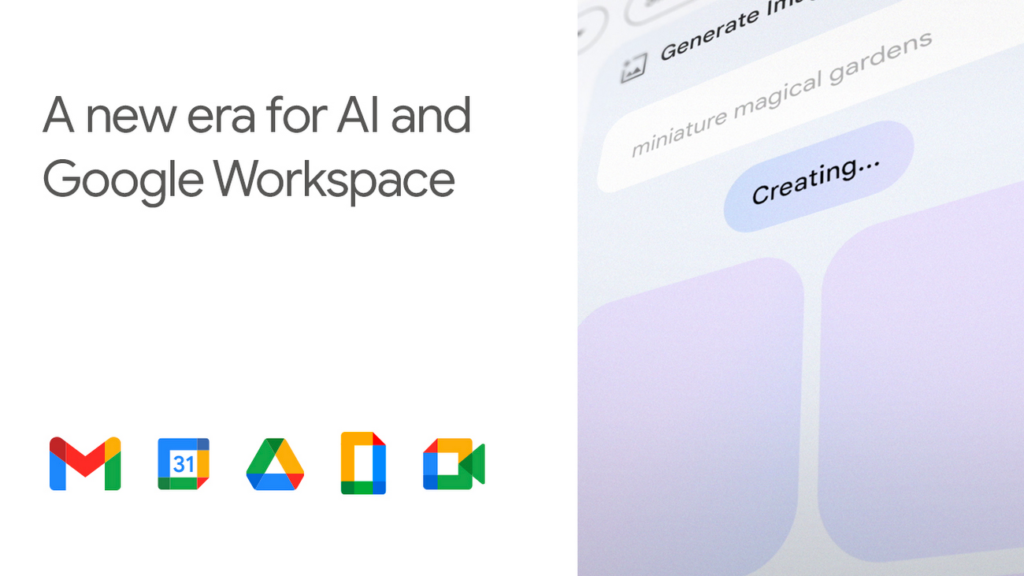
In the ever-evolving landscape of digital content creation, the introduction of AI-powered tools has been both a boon and a source of controversy. Content creators and website owners have long held the belief that AI-generated content could lead to penalties from search engines, particularly from the almighty Google. However, recent developments have left the community both intrigued and puzzled. Google, the search giant itself, has taken a remarkable step by adding AI content in Google Docs in the form of an AI wizard.
As discussions surrounding AI-generated content and its impact on search engine rankings continue, the rollout of Google’s AI content wizard brings the apparent contradiction to the forefront. Is it a revolution in writing, empowering authors with a new toolset? Or does it signal a shift in Google’s stance on AI-generated content, challenging the beliefs of content creators and SEO experts?
The Perception of AI-Generated Content and SEO
The relationship between AI-generated content and SEO has been an ongoing topic of speculation and debate within the digital realm. Content creators and website owners have often approached AI-generated content with caution, fearing potential penalties from search engines, including Google. This perception stems from concerns about content quality, originality, and the ability of AI systems to produce value-driven narratives that resonate with human audiences.
Over time, the SEO community has witnessed discussions and case studies exploring the impact of AI-generated content on search engine rankings. The prevailing belief has been that search algorithms may penalize websites that utilize AI-driven content creation, as it may be perceived as “low-quality” or “spammy” due to the lack of human touch.
However, the recent introduction of AI content in Google Docs presents a curious twist to this narrative. The search giant’s willingness to integrate AI technology into a widely-used content creation platform raises questions about the previously held belief that AI-generated content faces penalties. Is Google’s stance on AI content shifting? Or is the AI content wizard an exception to the SEO implications that AI-generated content might carry?
In the next sections, we delve deeper into AI content in Google Docs, its features, and how content creators and SEO experts perceive this apparent contradiction. By examining Google’s approach and the potential benefits of AI-powered content creation, we aim to shed light on whether the era of AI content represents a new writing revolution or if the contradiction will continue to challenge established beliefs.
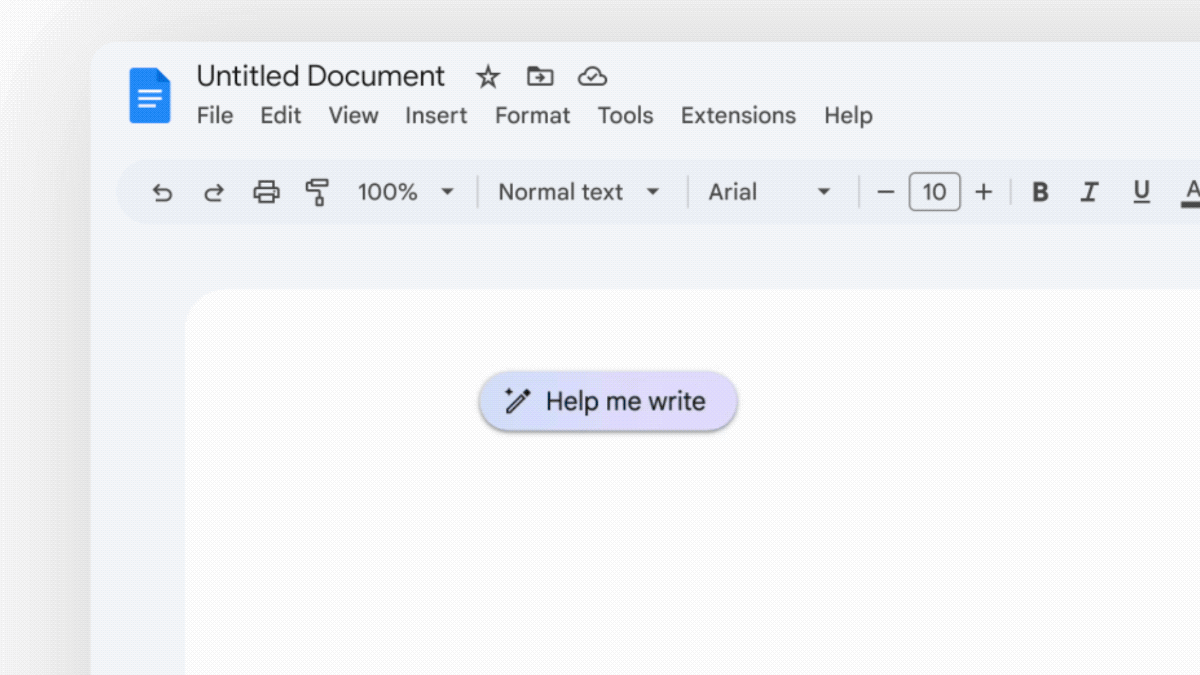
Google’s AI Content Wizard in Google Docs
Amidst the ongoing debates surrounding AI-generated content, Google’s recent unveiling of using AI content in Google Docs has stirred curiosity and intrigue among content creators. This innovative tool marks a significant leap forward in content creation technology, offering writers an AI-powered assistant to aid in crafting engaging narratives.
AI content in Google Docs harnesses the power of Natural Language Processing (NLP) and machine learning algorithms to analyze written content and provide intelligent suggestions. With its user-friendly interface and seamless integration, writers can now experience a smoother writing process, with the AI assistant generating relevant ideas, enhancing grammar, and proposing better structure.
The introduction of AI content in Google Docs brings forth a fascinating question: does Google’s embrace of AI in content creation signify a shift in the search engine’s attitude toward AI-generated content? While the wizard encourages efficient and effective writing, content creators remain cautious about the potential SEO implications of using AI technology.
To navigate this apparent contradiction, we explore the functionalities of AI content in Google Docs and examine its role in the content creation process. By understanding how AI fits into Google Docs, we aim to discern whether this leap in technology aligns with Google’s overall stance on AI-generated content or offers a glimpse into a new era of content creation possibilities.
As we delve deeper into the wizard’s capabilities and consider its implications for SEO strategies, we invite content creators and SEO experts to weigh the benefits and challenges of integrating AI into the content creation landscape. While the AI content wizard presents exciting opportunities for more efficient writing, the question of how it influences search engine rankings looms large.

The Contradiction: Google’s Stand on AI-Generated Content vs. AI Content in Google Docs
Google’s approach to AI-generated content has historically been accompanied by skepticism and concerns about its impact on search engine rankings. The fear of potential penalties has led many content creators to steer clear of AI-powered content creation tools. However, the introduction of the AI content wizard in Google Docs challenges this traditional perception and presents a noteworthy contradiction.
On one hand, Google has maintained that AI-generated content may not align with its guidelines, which prioritize high-quality, original, and user-centric content. Content created solely by AI systems may lack the creativity and empathy that human writers bring to the table, potentially resulting in a subpar user experience.
Conversely, AI content in Google Docs encourages writers to explore AI assistance to streamline their creative process. By offering intelligent suggestions and enhancing efficiency, the tool aims to empower writers without compromising the quality of the content. The apparent contradiction lies in Google’s willingness to embrace AI as a supportive tool within its own platform while maintaining caution regarding AI-generated content elsewhere.
While Google’s AI content wizard raises eyebrows, it also opens up possibilities for content creators to experiment with AI-driven assistance. However, the question of how Google’s algorithms perceive and rank content created with the AI content wizard remains a topic of intrigue. The contradiction prompts reflection on the evolution of AI content creation, Google’s criteria for content quality, and the future of AI-powered writing in the realm of search engine optimization.
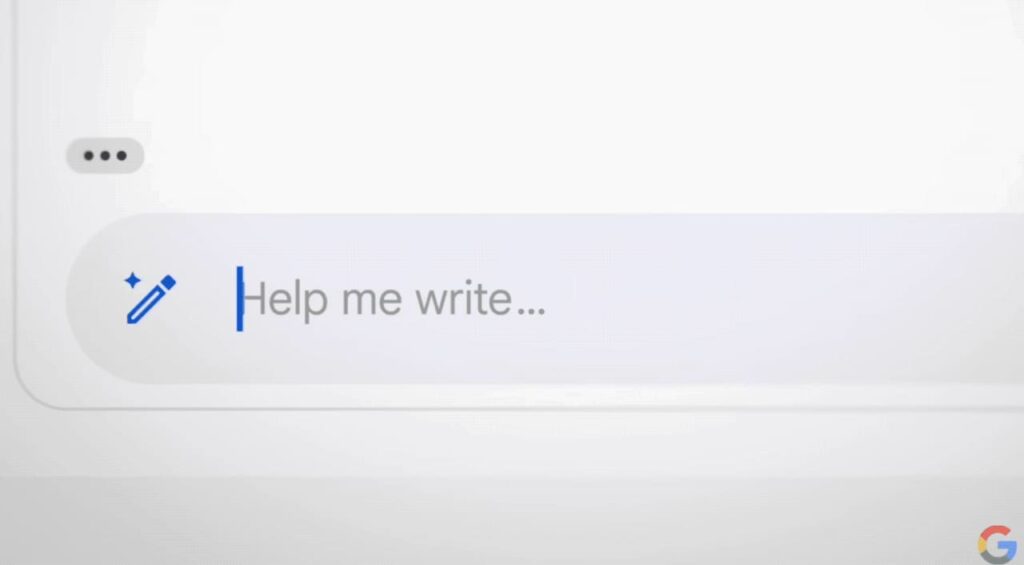
The Impact on Content Creators and SEO Strategy
The introduction of AI content in Google Docs has left content creators contemplating its potential impact on their writing process and overall SEO strategy. As writers explore the possibilities of AI-powered assistance, there are essential considerations to weigh.
For content creators, the AI content wizard offers undeniable advantages, such as increased writing efficiency, optimized grammar, and enhanced organization. It empowers writers to focus on creativity, while the AI handles the technicalities. However, concerns arise about maintaining a distinctive voice and human touch in AI-assisted content. Striking the right balance between AI-generated suggestions and personal flair becomes paramount to retaining authenticity and resonating with audiences.

From an SEO perspective, the impact of AI-generated content on search engine rankings remains a topic of contention. While AI content in Google Docs aims to facilitate high-quality content creation, SEO experts ponder whether search algorithms would favour or penalize content that relies heavily on AI assistance. Google’s emphasis on content relevance, user experience, and originality may pose challenges for AI-generated content to achieve top-ranking positions.
As content creators adapt to AI-powered tools, recalibrating SEO strategies becomes imperative. Incorporating AI-generated elements strategically while preserving unique insights and value for readers can foster harmony between AI assistance and SEO goals. By leveraging the AI content wizard judiciously, content creators have the potential to optimize their workflow and refine their content for enhanced search visibility.
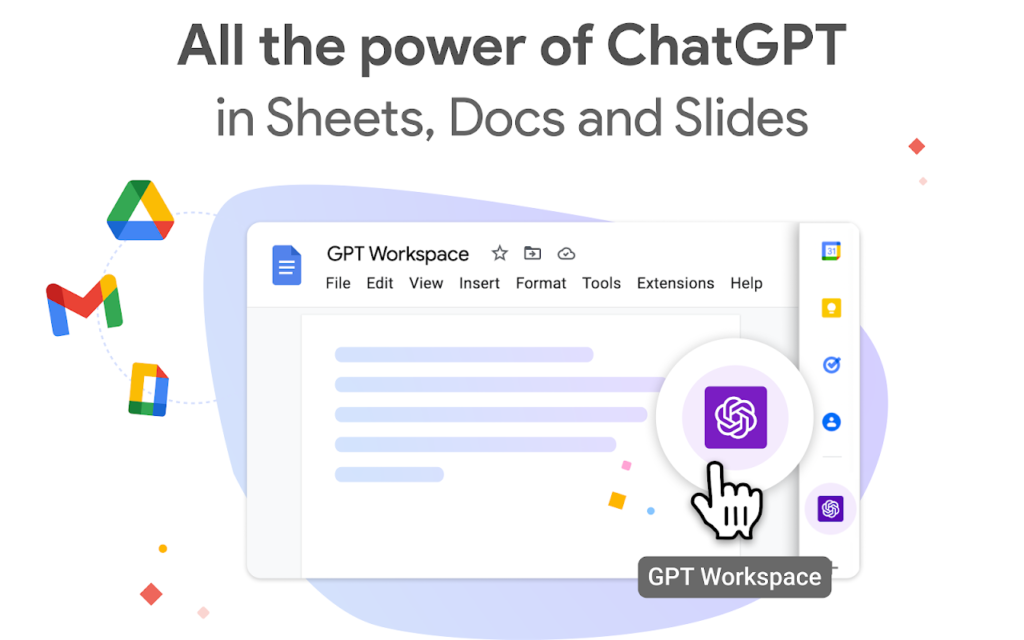
Balancing AI and Human Creativity
The coexistence of AI-powered content tools and human creativity presents an intriguing challenge and opportunity for content creators. Embracing AI technology need not mean compromising on the essence of human expression; instead, it opens the door to a harmonious fusion of machine assistance and human ingenuity.
Content creators can leverage AI-driven suggestions and optimizations to streamline their writing process and enhance efficiency. By entrusting repetitive tasks to AI content wizards, writers can channel their energy into crafting engaging narratives, injecting their unique perspectives, and fostering genuine connections with readers.
However, striking the right balance is vital to avoid the pitfalls of over-reliance on AI. The creative spark, emotion, and empathy that human writers bring to their work contribute to authentic storytelling and resonant experiences. AI-generated content can supplement creativity, but it cannot replicate the depth of human insight and personal connections that readers crave.
For SEO strategists, finding equilibrium means integrating AI-generated content strategically without neglecting the essence of human-driven value. Crafting content that addresses user intent, addresses pain points, and sparks genuine engagement remains essential. AI’s role lies in assisting content creators in data analysis, topic suggestions, and grammar refinements, while the core storytelling remains the domain of human brilliance.
As content creators and SEO experts navigate this delicate balance, embracing AI as a valuable tool rather than a replacement, they embark on a transformative journey that harmonizes human creativity and AI innovation to redefine the landscape of digital content creation.
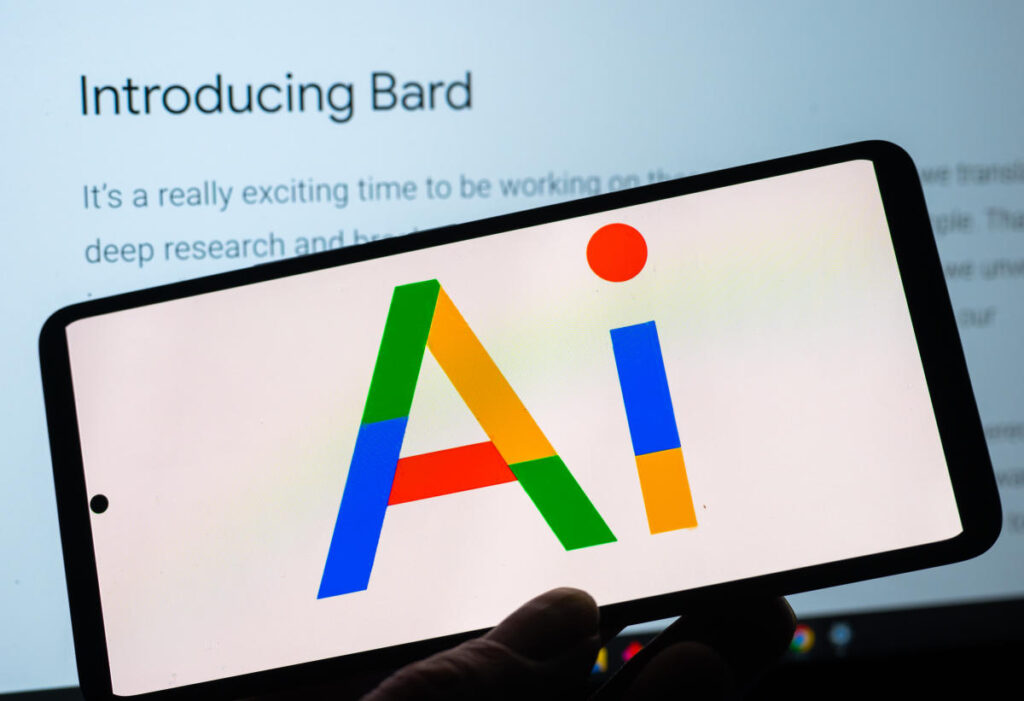
Case Studies and Expert Opinions
To shed further light on the intriguing relationship between AI content and SEO, let’s delve into case studies and gather insights from industry experts.
Case Study: Brand X Blog
Brand X, a prominent lifestyle brand, integrated the AI content wizard into their content creation process to increase writing efficiency and deliver fresh blog posts more frequently. While the AI assistance improved productivity, they noticed that posts heavily relying on AI-generated content experienced lower engagement metrics. Brand X adjusted its strategy by using AI-generated elements as a foundation and then injecting human creativity to craft captivating narratives. This balance led to higher reader interactions, emphasizing the significance of human-driven storytelling.
Expert Opinion: Dr. Sarah SEO
Dr. Sarah SEO, an SEO strategist, highlights that AI-generated content can aid keyword research and data analysis, providing valuable insights for content optimization. However, she advises caution against using AI to produce entire articles, as it may hinder establishing a unique brand voice. Dr. Sarah emphasizes that creating high-quality, original content, tailored to audience needs, remains paramount for sustainable SEO success.
As case studies and expert opinions illustrate, the journey of incorporating AI into content creation and SEO is nuanced. While AI tools can enhance efficiency, it is the seamless fusion of AI-driven insights and human creativity that paves the way for a dynamic and impactful digital landscape.
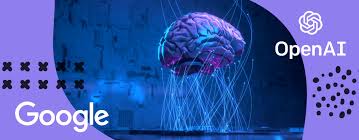
Final Thoughts on AI Content in Google Docs
The integration of AI content in Google Docs marks a significant milestone in the evolution of content creation. As content creators and SEO strategists navigate this new frontier, it becomes evident that AI-powered tools offer tremendous potential, but they are not without challenges.
The apparent contradiction between Google’s caution towards AI-generated content and the encouragement of AI assistance within its own platform prompts thought-provoking questions. How can content creators strike a balance between AI-driven efficiency and the human touch that resonates with readers? How will search engines adapt to the rise of AI-assisted content in the context of SEO rankings?
The key lies in viewing AI as a supportive tool rather than a replacement for human creativity. By harnessing AI content wizards to streamline mundane tasks and optimize data analysis, content creators can elevate their craft and focus on weaving captivating stories. SEO strategists can leverage AI insights while prioritizing user-centric, original content that fulfills search intent.
As technology continues to advance, the journey of AI content in Google Docs becomes a testament to the coexistence of human ingenuity and machine intelligence. Embracing AI’s potential while upholding the essence of human creativity paves the way for a vibrant digital landscape, where engaging content and SEO success flourish in harmony.


